The Book Thief Review
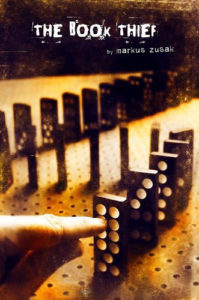 I had tears in my eyes, and I hadn’t even reached the end of the Prologue. The Book Thief by Markus Zusak is one of the most moving books for teenagers (and adults) that I’ve read in a long, long time. It may be the best novel about the holocaust ever written. It moved me more than Night by Elie Wiesel, or Daniel’s Story by Carol Matas. It belongs on every junior high and high school bookshelf in every classroom in the world.
I had tears in my eyes, and I hadn’t even reached the end of the Prologue. The Book Thief by Markus Zusak is one of the most moving books for teenagers (and adults) that I’ve read in a long, long time. It may be the best novel about the holocaust ever written. It moved me more than Night by Elie Wiesel, or Daniel’s Story by Carol Matas. It belongs on every junior high and high school bookshelf in every classroom in the world.
The Book Thief tells the story of Liesel Meminger, a young German foster child living in a small town during the late 1930s and early 1940s. What she witnesses and experiences is tragic enough, but what makes Zusak’s novel especially compelling is that the person narrating Liesel’s story is Death himself.
The brilliance of Zusak’s novel is the way Death relates the events of Liesel’s life. The narrator is possibly the most interesting of all the characters in the novel, and Zusak does a masterful job of creating a believable persona for Death. He has a kind of wisdom and sensitivity that one might find surprising from a being whose job it is to cart away the souls of the dead. Death also foreshadows and in some cases pointedly reveals all the major events of the story because he wants to spare his readers emotional pain. This is a caring, insightful narrator, and I came to think of him as the Angel of Death, rather than as simply death personified.
The characters are just as compelling, and though Zusak’s favorite character is Rudy, my favorite was Liesel’s father, Hans, probably because I’m a father myself. There are many characters with whom readers can identify: Liesel, the main character; Rudy, her best friend; Hans, her father; Rosa, her mother. Each of them comes alive on the pages.
The Book Thief also offers much to the developing reader. Students can study the narrative technique, the use of foreshadowing, and the interesting way the narrator interrupts the narrative with bold declarative statements and questions. The book also illustrates the power of words (both positive and negative), and the therapeutic value of reading.
For parents concerned about its content, The Book Thief can be disturbing at times, but, gratefully, Zusak shows remarkably effective restraint. There are occasional mild swear words (including German profanities), but these are minor compared to some other “young adult” books I’ve had to suffer through. The Book Thief also avoids the all-too-common tendency of many young adult authors to dwell on and overemphasize sexual topics.
The Book Thief is a powerful, important story that people will still be reading decades from now.

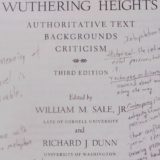
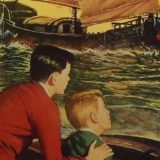

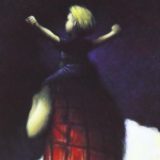




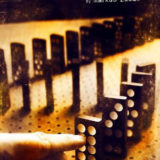



Unfortunately, I do not agree with you. The Book Thief does have an interesting narrator, and Zusak shows a new side of Death, but Death behaves too much like a human. In almost any YA book, you will find a character almost exactly like him.
Secondly, The Book Thief, though a good history lesson, does not portray Liesel’s love for books enough. Though she steals a book every chapter, Zusak does not tell how each individual book affected her. They are lumped together as one category of having expanded her horizon. How?
Lastly, and most importantly, The Book Thief is not written very well. Zusak seems to be trying to make every sentence a quote. It seems like every paragraph is suppose to touch our hearts, and change our life somehow. This gets quite annoying, as most readers don’t feel like stopping at every other sentence, pondering over the meaning that isn’t there.
However, The Book Thief has a singular plot, and is quite interesting, though Zusak could have made many improvements.
My [9th grade] daughter read this book over the summer….she loved it! She likes many books, but saves “love” comments for only a few books.
Enjoyed your review.
Trinity Prep School
Really? How odd. I am in high school too. Unfortunately, I wasted my allowance on The Book Thief. There were so many other books I could have chosen. >sigh
I found a used hardcover copy of The Book Thief at a local bookstore for $3.49 yesterday, and as I was standing in line to buy it a woman behind me (around the age of 50, I guess), said, “Oh, that is such a wonderful book. I just loved it.” I agreed and told her I was buying it for my eighth grade students. She smiled, and then it was my turn to pay for my books.
It’s strange how passion for a book can connect two total strangers.
Indeed. Though I’ve found that shows work just as well. 😉
I just finished this book and really enjoyed it – I’m going to read it again in a few months as I think it’s one where you understand more each time you read it.
Here’s my review if you fancy taking a look: http://www.clareswindlehurst.com/bookreviews/2008/01/27/the-book-thief-markus-zusak/
Thanks for the link to your review. “This book is beautiful – from the story to the prose – and I can honestly say I’ve never read anything like it.” I totally agree.
i have already read the book 6 times and have never got bored of its touching moments and pondering sentences.i think people who say that the book thief wasnt written well just dont understand its meaning properly. it is a very enjoyable book and the way its narrated through death illistrates alot. it brought me into the world of words.
In all honesty, I didn’t really like the book right off the bat, but by the time I had finished it I had come to love it. It’s all a matter of understanding the book enough to love it, which is one of the reasons why students should read it in school while they are studying WWII.